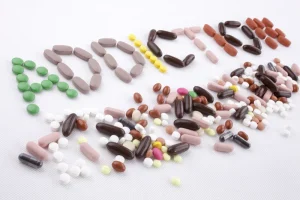Ibuprofen Addiction Discover Signs, Causes & Treatment Here

Out of all the NSAIDs in circulation, Ibuprofen is one of the safest in terms of side effects. Aspirin was found to have side effects 20 percent of the time compared to 1.5 percent of Ibuprofen users and 1 percent of placebo patients. Like all members of this family, however, patients that take this medication for too long a period will most likely have some type of gastrointestinal ulcers, chronic kidney disease or bleeding disorder. In one investigation, it was determined that 20 percent of NSAID users (even Ibuprofen) will have gastric ulcers.
Painkiller addiction
They provide the initial treatment or direct patients to specialised local drug services, marking the beginning of their path towards recovery. To tailor an effective treatment plan, healthcare providers conduct thorough assessments of each patient’s use of drugs and individual life circumstances. Primary care doctors are capable of commencing treatment for such dependencies. Still, individuals have the option to have their primary care physician seek out drug treatment services on their own by using dedicated hotlines and online support platforms.
Alcohol and Ibuprofen Detox Withdrawal Symptoms
All three had started using the product for its approved indications, but their use had escalated as they became tolerant to the codeine element. Ibuprofen overdose is rarely fatal, although cases of death are reported.[21][42][57] The extent of recovery depends on the severity of the toxicity, but generally, full recovery is expected with appropriate supportive care. Both the National Institute of Drug Abuse (NIDA) and the Substance Abuse and Mental Health Services Administration (SAMHSA) offer in-depth information on both the symptoms and treatment of prescription painkiller addiction. Inpatient rehabilitation provides an immersive and structured environment, offering round-the-clock care and support. Alternatively, outpatient rehabilitation allows individuals to attend therapy sessions while residing at home, enabling them to balance recovery with daily life. Effective treatment for Ibuprofen addiction often begins with detoxification (detox), where individuals can safely and gradually withdraw from the medication under medical supervision.

Experience Transformative Recovery at the We Level Up Treatment Center.

This could be harmful physically, psychologically, socially, and financially. An individual may begin taking Ibuprofen in order to manage mild to moderate physical pain. This may lead to the risk of developing a tolerance or dependency on the drug due to feeling as though they cannot function normally without the Ibuprofen. An addiction to additional drugs in addition to Ibuprofen abuse may require the help of an rehab center. If you or your loved one is struggling with a dependency on Ibuprofen, take the first step by asking for help and seeking a licensed counselor or therapist who can help address the cause of this. This article explores the symptoms, causes, diagnosis, and treatment of ibuprofen addiction.

- Similar to the misuse of opioids, ibuprofen addiction can stem from insufficiently managed pain needs.
- The important thing to recognize is that Pfizer has chosen to use a very narrow definition of addiction in their corporate communication materials regarding Advil and ibuprofen, Advil’s active ingredient.
- Stomach and kidney damage is a major concern, and cardiovascular risks are real.
- Inactive chemicals in this product have the potential to trigger allergic reactions or other issues.
- With the right treatment options and compassionate support, individuals can liberate themselves from the clutches of addiction, finding hope and healing along the way.
- However, it turns out that this relatively mild pain reliever can put your health in danger.
- They provide the initial treatment or direct patients to specialised local drug services, marking the beginning of their path towards recovery.
This addiction can have a grip on someone’s life, but there are treatments available to help. This usually involves the use of a medication called Suboxone that can help curb the painful side effects of withdrawal and detox. Most people who buy Ibuprofen as an over-the-counter medication to relieve pain or muscle aches do not think that it can be dangerous or addictive. Yet, too much Ibuprofen can have damaging side effects and Ibuprofen dependency does exist as a health condition. The most common antidepressant withdrawal symptom is anxiety, which can cause increased heart rate, profuse sweating, and rapid breathing. You may also find your mood to be lower than normal during antidepressant withdrawal, though this is more common if you had mood difficulties prior to your treatment for chronic pain.
- Symptoms most commonly consist of gastrointestinal distress and hemorrhagic gastritis.
- The brain is full of molecules called receptors that receive signals from other parts of the body.
- There are also medications and behavioral therapies that can help individuals overcome a painkiller addiction.

Persisting on using ibuprofen despite experiencing adverse effects is a hallmark sign of addictive behaviour. When someone begins neglecting their duties and withdrawing from social interactions, it could indicate they’re grappling with an addiction to ibuprofen. Often, these changes in behaviour develop slowly, which makes them challenging to identify during the initial stages of dependence on the drug.
Should you worry about painkiller addiction?
The CIWA Assessment scale is a validated assessment tool comprising 10 items, used to measure the intensity of an individual’s symptoms during alcohol withdrawal. Even if you have failed previously, relapsed, or are in a difficult crisis, we stand ready to support you. Call us when you feel ready or want someone to speak to about therapy alternatives to change your life.
- Therapists also help people manage symptoms of depression and anxiety, which can be common in people living with chronic pain.
- At AnorMed, we recognise the significance of raising awareness about Ibuprofen addiction and the need to extend compassion and support to individuals and families facing this challenge.
- Non-steroidal anti-inflammatory medications, like Ibuprofen, function in the body by decreasing the production of substances that cause fever, pain, and inflammation.

Pain medication like ibuprofen, while not considered highly addictive compared to nicotine, alcohol, opioids, other prescription medications, or illegal drugs, can still fulfill the criteria in some cases. Recognizing these diverse presentations can help reconcile differing opinions about what constitutes SUD. Those who’ve been taking opioid-based painkillers for several months need to taper usage to help can you get addicted to ibuprofen manage withdrawal symptoms. The tapering process involves several steps to decrease the number of painkillers taken each day gradually. Tapering slowly is the safest option, but it can take several weeks or even months to keep withdrawal symptoms at a minimum and reduce the likelihood of relapse. There are also medications and behavioral therapies that can help individuals overcome a painkiller addiction.
What Is the Recommended Dosage for Ibuprofen?
In 2015, the Food and Drug Administration (FDA) strengthened its warning about the increased risk of heart attack or stroke when using ibuprofen. Ibuprofen is an NSAID, which is a type of medication with analgesic, fever-reducing, and, in higher doses, anti-inflammatory properties. Headache, backache, osteoarthritis, stomach ache – your body is very good at telling you when you’re in pain, and it’s your nervous system that’s responsible.
Food and Drug Administration (FDA) issued a warning advising women to avoid NSAID use after the 20th week of pregnancy. It is crucial to steer clear of the improper use of ibuprofen to avoid these medical problems. Tara Healthcare LLC is a technology platform which connects patients to licensed providers in the state in which they live. Special care should be taken in controlling even moderate pain for certain groups, such as pregnant women. Ibuprofen addiction can be motivated by physical causes as well as emotional reasons. It is best to take it with food or a drink of milk to reduce the risk of an upset stomach.



















Comments are Disabled